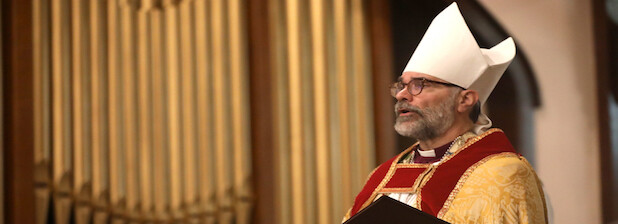Law and Gospel; A Sidebar

Traditional catechism, i.e., teaching to prepare for confirmation, centered on the exposition of the 10 Commandments (along with the Creeds and the Lord’s Prayer, which we shall consider later). So, as part of our consideration of the Old Testament, we should reflect on the Commandments. But first let us say something about how the tradition, and especially its Reformation part, has understood the law in general. As Paul makes abundantly clear, the law cannot save us because we cannot save ourselves by our efforts, though the law in and of itself is good and holy. However, this does not mean that the law is not important to us. It does three important things: first, it restrains evil in this time in which we await the coming of the Kingdom of God. Secondly, it shows us our need to God’s grace. If the measuring rod of holiness is Jesus’ Sermon on the Mount, none of us has a chance! Third of all, it can, gradually and modestly, be a set of guideposts and encouragements on the road for the pilgrim.
The Ten commandments stand as the beginning, the cornerstone of the Torah which God gives to Moses. (Luther also finds in them a kind of universal guide for the human race, individually and corporately, since they understand thoroughly our nature and standing before God). They cannot be separated from His revelation to us, nor from His saving acts at the Red Sea. Theology and ethics are one; He has opened graciously the road we are to follow.
The first commandments have to do with God setting us apart as a special people in a special covenantal relation which He has initiated with us (1). He alone is our God. He has a particular character, a name (3), and has done specific things on our behalf (1). He has set apart time for us to recall Him, and to worship Him (4). All this comes from Him; the One who made us without our help has now called us (2).
While the first four commandments have to do with our relationship with God, the latter four have to do with how brothers and sisters in this covenant with the God of Israel would consistently treat one another, so as to be a people set apart for His praise and purposes. He gives the gift of children, and He gives parents the responsibility of passing on the faith, so they must be honored (5). Life and death lie properly in His hands (6), as does the marriage relationship for the sake of the procreation of children (7). If our life is grounded in His promise which is true, we need to mirror it in our honesty and trustworthiness one with another. (9). Not only our speech, but also our property bespeaks (or doesn’t) this covenant, this special bond initiated in Him (8), which includes treating your neighbor respectfully as belonging to God and not to you (10).
Sing ‘All People that on Earth Doth Dwell’ and discuss.



